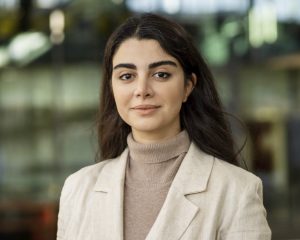Towards automated personal comfort systems for heating, cooling and ventilation
Hello, my name is Petros Zimianitis (31 years old). I come from Greece and I was an EngD trainee in the Smart Buildings and Cities program at Eindhoven University of Technology. I studied Physics as my bachelor’s and did my master’s in Computational Physics in Greece.
Driven by my curiosity and my eagerness to come up with innovative solutions to interesting technical challenges, I started my Engineering Doctorate traineeship in 2021, to contribute to the world of the built environment.
Are we using energy efficiently?
In the Netherlands, buildings are responsible for a great proportion of the total energy consumption. It is estimated that there can be significant energy savings by improving building installations and conditioning systems. Another important issue is the reported dissatisfaction of occupants in non-residential buildings regarding their perceived comfort and air quality. This is not a very efficient way of using energy, especially now that the world is moving to more sustainable energy generation. There are also a lot of research findings regarding the differences in perceived comfort across individuals.
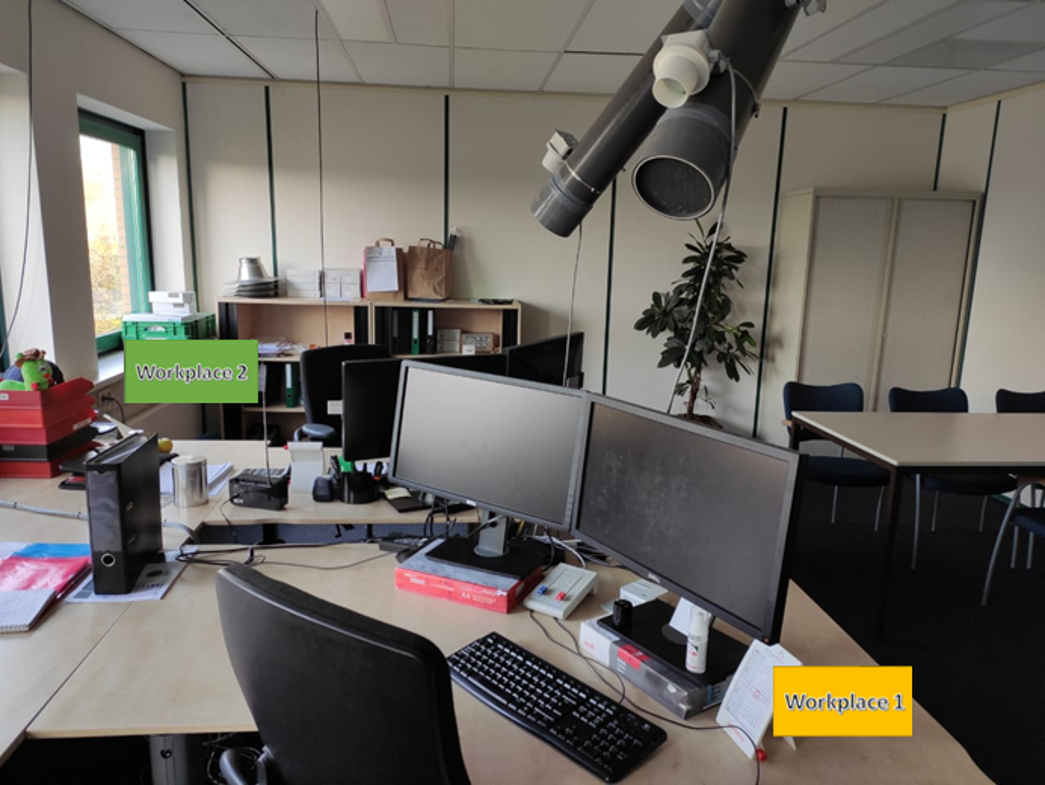
Individualizing comfort in offices
My project, ‘Towards automated personal comfort systems for heating, cooling and ventilation’, is part of the Brains4Buildings consortium. It aims to take the step from research towards design and, thus to develop and test a prototype personalized comfort system (PCS), controlled by a machine learning model, as a module for building management systems for office buildings. The control inputs for the system come from both objective measurements of the environmental conditions around the occupant as well as the occupants’ perceived thermal comfort and perceived air quality.
System development
The prototype PCS was developed in a real office environment, in the living lab of Kropman in Breda. Prior to now, there was been a lot of research performed in controlled experiment rooms (climate chambers) at universities and other institutes. The benefit of developing such a system in a real office environment is that the system and the interaction that the occupants have with it can be tested in real-world conditions.
Performance
During the tests, the system showed promising performance. The machine learning models were able to predict the perfect settings for the volunteers the majority of the time. It was also reported that the volunteers that were using the PCS were felt comfortable throughout the day, whereas other people that worked in the same building in normal offices were experienced some kind of discomfort throughout the day.
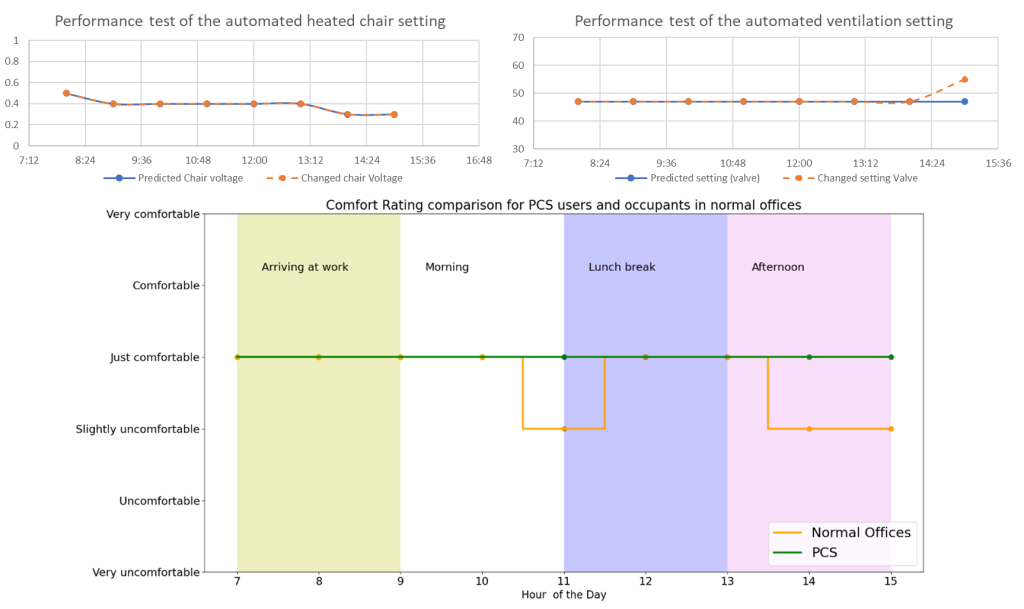
What does this mean?
By individualizing comfort systems, there are huge gains that can be made in energy use. PCSs are using significantly less energy for the same task than central conditioning systems. A combination of these systems can prove to be much more energy efficient than the systems currently in use, thus, enabling buildings to easily integrate sustainable on-site energy generation solutions. All this is possible, while still providing increased levels of comfort to the occupants, which also extends to higher productivity and overall improvement of the occupants’ well-being!
By individualizing comfort systems, there are huge gains that can be made in energy use. PCSs are using significantly less energy for the same task than central conditioning systems
Interns join Smart Heat Shed and Low Literacy projects
Since September, two interns have been actively engaged at Eindhoven Engine . Jamy has taken on responsibilities within the Smart Heat Shed project, while Nivar is currently working on an assignment for the Low Literacy project.
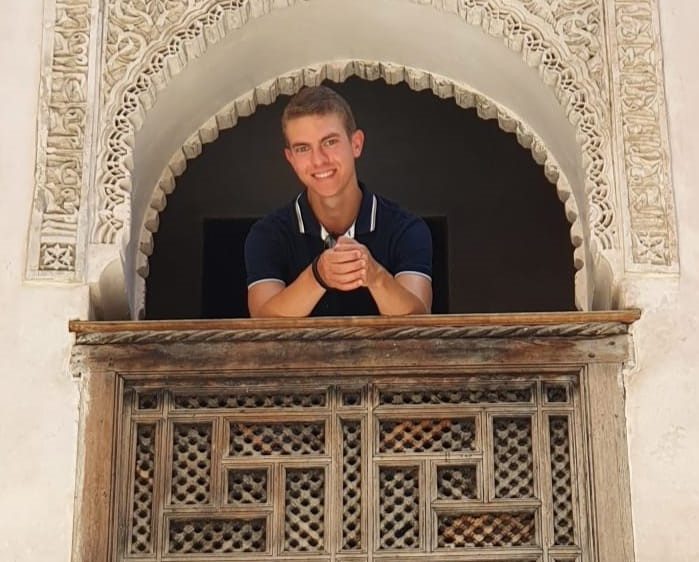
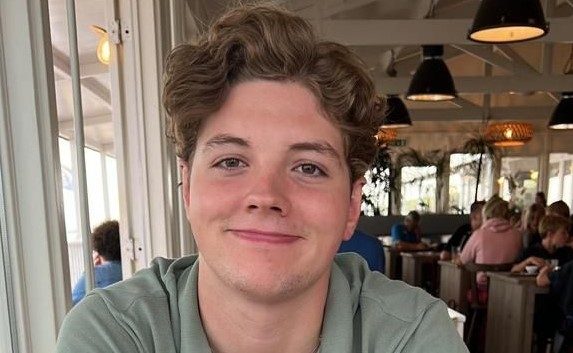
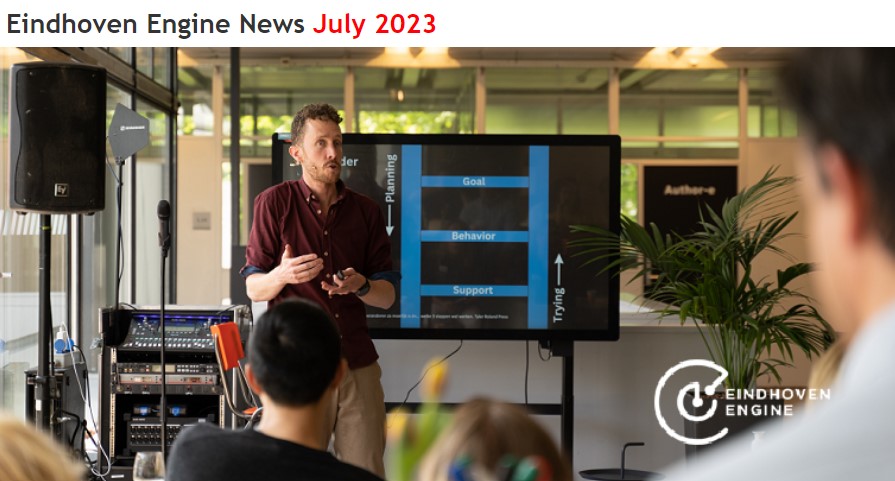
Eindhoven Engine News – July 2023
In this edition of Eindhoven Engine News: Festival of Disruption 2023, Innovator Ayda Golahmadi in the Spotlight, new project videos of Carbyon and more!
What else is happening at Eindhoven Engine?
Improving indoor air quality in schools in the Netherlands
Hello, I’m Ayda Golahmadi, a curious individual and an EngD trainee from Iran who is always seeking fresh perspectives on everything around me. My dedication, creativity and abilities have always been directed towards fostering innovative viewpoints and adopting a holistic approach to all aspects of life. Engineering and design emerged as the perfect avenue for me to kickstart my career.
Improving indoor air quality
My research is focused on improving indoor air quality (IAQ) in schools in the Netherlands as part of the ECOS-IAQ project. The project aims to propose new strategies for improving the performance of ventilation systems in Dutch schools. The study explores the concept of ventilation effectiveness as a strategy to improve IAQ in classrooms. It demonstrates the potential of improving the effectiveness of ventilation rather than merely increasing airflow rates to meet indoor air quality needs.
Promising results
The results of my research so far have been promising. I have been able to use Computational Fluid Dynamics (CFD) simulations to analyze the airflow distribution in a classroom and assess the performance of different ventilation systems. The insights gained from these simulations have been instrumental in understanding the impact of various factors on indoor air quality. One of the key findings of my research is the potential impact of implementing multi-zone ventilation concepts and methodologies in classrooms. This approach has shown promise in improving the effectiveness of ventilation and indoor air quality.
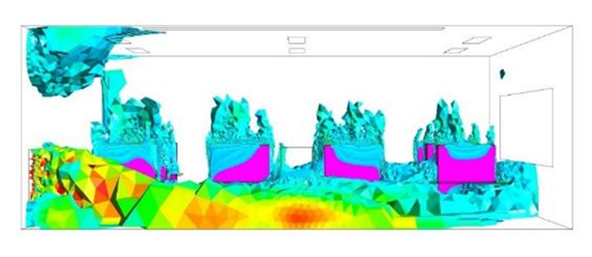
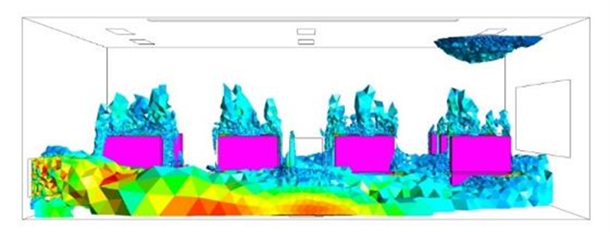
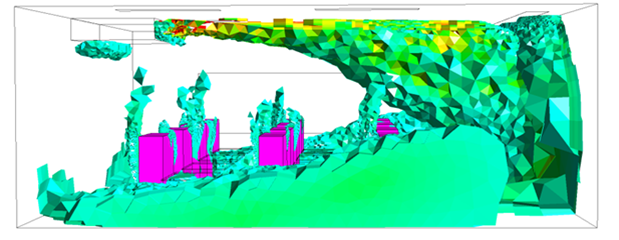
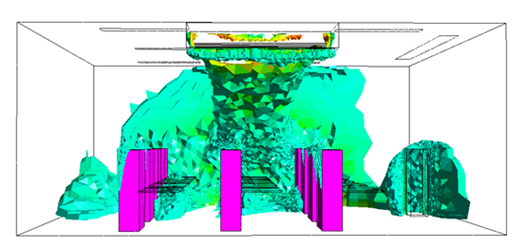
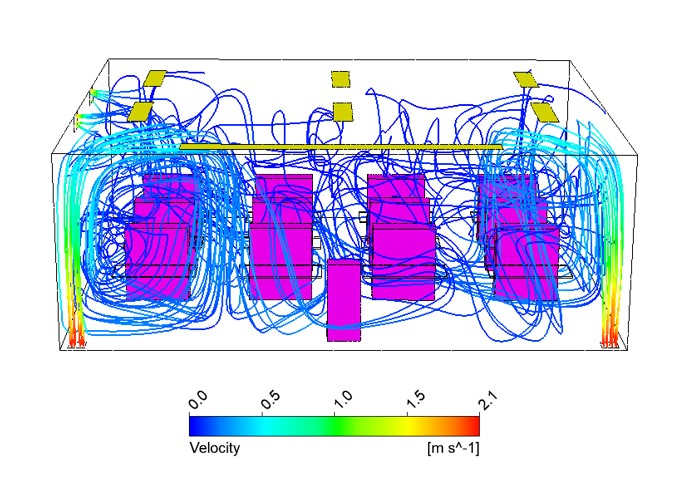
Limitations
However, there are several challenges that I still need to address. One of the main challenges is the limitations of CFD simulations. The quality of the input data has a significant impact on the accuracy of the results. Additionally, the complexity of physical phenomena such as turbulence and heat transfer can also affect the accuracy of the CFD simulations. Another challenge is the generalization of ventilation types. The study focused on two specific types of ventilation concepts: displacement ventilation and mixing ventilation. However, there are other ventilation concepts that were not considered in the study.
Impact is significant
Despite these challenges, I am optimistic about the impact of my research. Indoor air quality is a critical factor that significantly impacts the health and academic performance of students in schools. By improving the ventilation systems in schools, we can enhance the indoor air quality, leading to better health, thermal comfort and higher energy efficiency. This research addresses the social problem of poor indoor air quality in schools, which has been linked to a decrease in students’ cognitive abilities.
In conclusion, while there are challenges to overcome, the potential impact of this research is significant. The insights gained from this study will not only contribute to the academic field but also have the potential to bring about meaningful change in the real world. I look forward to continuing my work on this project and making a positive impact on the lives of students in schools.
The insights gained from this study will not only contribute to the academic field but also have the potential to bring about meaningful change in the real world.
Improving indoor air quality in schools in the Netherlands
Hello, I’m Ayda Golahmadi, a curious individual and an EngD trainee from Iran who is always seeking fresh perspectives on everything around me. My dedication, creativity and abilities have always been directed towards fostering innovative viewpoints and adopting a holistic approach to all aspects of life. Engineering and design emerged as the perfect avenue for me to kickstart my career.
Into a working machine
Marco Arts is the chief operating officer at Carbyon. Currently, Carbyon is collaborating with Eindhoven University of Technology and DIFFER in the Eindhoven Engine project Carbyon 2.0 to verify their key technologies in their lab environments. Currently, they are developing a fully integrated working machine that takes in ambient air and delivers pure CO2.
Direct air capture by different solvents
Jasper Simons, CTO at Carbyon, showcases the first test version of their direct air capture equipment. And Shilpa Sonar is working as a postdoc researcher at Eindhoven University of Technology. Shilpa’s research is mainly focused on the direct air capture by the different solvents. Her research will be carried out in the Carbyon’s own home-produced reactor.
Improving indoor air quality in schools in the Netherlands
Hello, I’m Ayda Golahmadi, a curious individual and an EngD trainee from Iran who is always seeking fresh perspectives on everything around me. My dedication, creativity and abilities have always been directed towards fostering innovative viewpoints and adopting a holistic approach to all aspects of life. Engineering and design emerged as the perfect avenue for me to kickstart my career.
Hans Krikhaar, who is leading this project and is a lecturer in Smart Manufacturing at Fontys Engineering, understood that SMEs have a great need for innovation, but lack the capacity and knowledge to do these innovations themselves. To be ahead of the competition, it is extremely important for SMEs to keep innovating their production processes. The industries need to adopt Smart Manufacturing. The fresh perspective and knowledge of Fontys students are the outcome here. In the ecosystem knowledge exchange at Eindhoven Engine makes cross-pollinations possible between Fontys students, SMEs, other companies and institutes. With the help of Eindhoven Engine, it results in a validated approach to strengthen the innovation power of SMEs in the Brainport region.
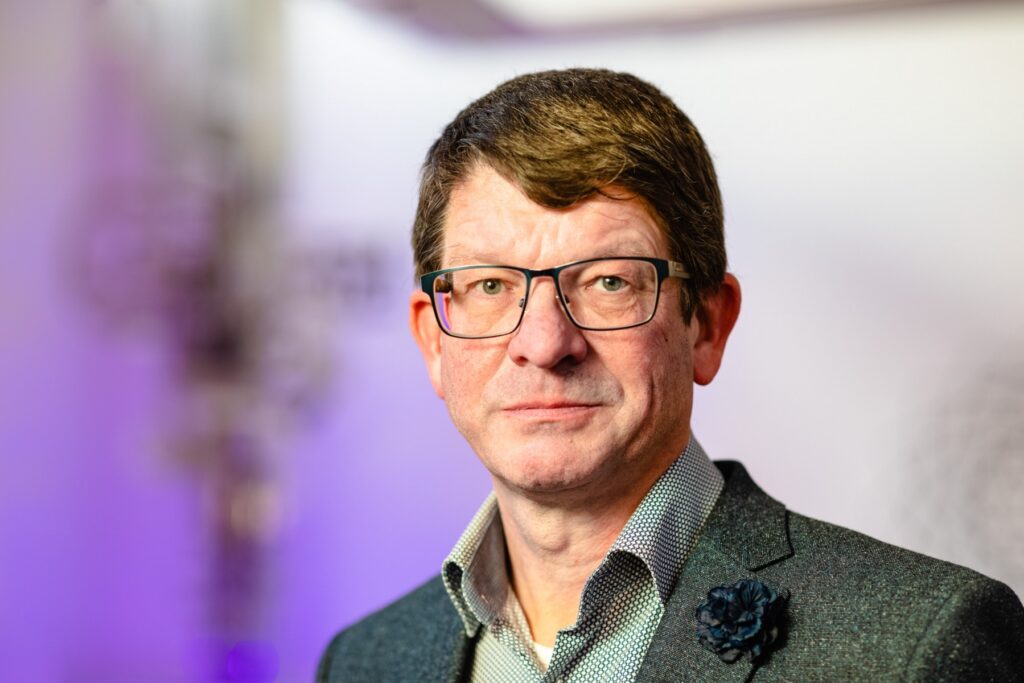
Projects in three focus areas
The goal of SmartMan project was to annually realize 40 subprojects carried out by 2nd, 3rd and 4th year Fontys students at SMEs. During the 3-year period at Eindhoven Engine, indeed a total of 120 projects at various companies were successfully completed. A very nice result considering this project withstood the corona epidemic. In the SmartMan project with Eindhoven Engine, Fontys, TNO and Brainport Industries as partners, students do their internship and graduation assignments in various facets of Smart Manufacturing.
These can be divided into three focus areas:
1. Topological design, which includes additive manufacturing and lightweight structures.
2. Intelligent systems (AI, low-code modeling and digital twinning).
3. Factory automation and robotics.
Knowledge exchange at Eindhoven Engine makes cross-pollinations possible between Fontys students, SMEs, other companies and institutes.
At VDL, successive students have worked on modular injection molds (topological design). In the area of intelligent systems, several students have used artificial intelligence for VBTI to further develop vision analysis, and at Siemens, students have collaborated on developing digital twins. Students have also contributed to factory automation solutions at various companies. At Eindhoven Engine project Carbyon DAC, a student even collaborated on the process plant for making CO2-absorbent material used to reduce CO2 in the atmosphere.
Stronger link
Fontys Engineering is working out plans to follow up on SmartMan. The goal is to link research even more closely to student projects in companies, especially in SMEs. Students will receive assignments within research domains at companies and teacher-researchers will provide the necessary knowledge transfer. This allows future students to complete their assignments more efficiently with the guidance and knowledge of the lecturer-researcher.
Vacancy: EngD trainee – Bridging the gap in society using the digital library of the future
Are you a masters graduate who wants to continue your study and obtain an Engineering Doctorate (EngD) with the focus on bridging the gap in society, caused by low literacy, using the digital library of the future?
Eindhoven Engine and the TU/e department Industrial Design is offering a fully funded 2-year position to master graduates leading to the award of an EngD (Engineering Doctorate) degree in Designing Human- System Interaction. Start date: as soon as possible.
About the assignment
In cooperation with a few project partners, Eindhoven Engine has decided to contribute to a deeper understanding and the design of a few meaningful interventions, addressing the huge societal challenge of non-inclusiveness. In particular, while the Brainport region is a highly intellectual region, at the same time 15% of the population is low literate, which excludes them from part of the possibilities available in the region. With that purpose in mind, Eindhoven Engine will bring together an ecosystem of students, researchers, start-ups and corporates to co-create, in an open innovation mindset, meaningful technology-based solutions with a strong human dimension.
The library itself has done a design oriented investigation to identify the problem and published its results. This report contains valuable suggestions. What we need now is a creative, innovative and open minded EngD candidate who can take responsibility for steering the ecosystem and leading the design of the possible solutions, for instance with student teams. No roads are impossible, as long as the impact is clear and it contributes to a solution of a real problem. B2 level of the Dutch language is a plus.
Do you have questions about this traineeship? You can also contact Walter Baets, Learning Officer @ Eindhoven Engine, via w.r.j.baets@tue.nl.
Updates on Emergence Lab
Vacancy: EngD trainee – Bridging the gap in society using the digital library of the future
Are you a masters graduate who wants to continue your study and obtain an Engineering Doctorate (EngD) with the focus on bridging the gap in society, caused by low literacy, using the digital library of the future?
In your position you will take care of the entire financial and project administration of Eindhoven Engine B.V. You will provide the MT with the necessary management information, you will give solicited and unsolicited advice, and you will think along with them to come to joint solutions/improvements. It is therefore broader than just a financial function.
The position of Finance & Project Controller falls under the responsibility of the Project Control department. This department, with a team of about 50 employees, performs the complete administration and financial management of all research projects of the University. These are some 2,000 projects on an annual basis, spread across a wide range of grant schemes.
Vacancy: EngD trainee – Bridging the gap in society using the digital library of the future
Are you a masters graduate who wants to continue your study and obtain an Engineering Doctorate (EngD) with the focus on bridging the gap in society, caused by low literacy, using the digital library of the future?
Eindhoven Engine and the TU/e department Industrial Design is offering a fully funded 2-year position to master graduates leading to the award of an EngD (Engineering Doctorate) degree in Designing Human- System Interaction.
About the assignment
In cooperation with a few project partners, Eindhoven Engine has decided to contribute the development of an integrated multi-dimensional digital twin of the Brainport region. Currently many scattered efforts for digital twinning are running. The aim of this project is to align a reasonable amount of these efforts into a state-of-the-art prototype that allows the Brainport region to address diverse actual problems (such as nitrogen reduction, the energy transition to renewables, the addition of 100.000 persons to the region and their impact on traffic, emergency service, …).
The challenge for the EngD position at Eindhoven University of Technology would be to develop and evaluate a concept prototype of a multidimensional, integrated digital twin for the MRE (Metropolitan Region Eindhoven) area. This digital twin should accurately represent the physical and functional aspects of the region, including infrastructure, transportation, buildings, and other urban systems.
Candidates should have a background in an area related to interaction design (e.g., industrial design, software engineering, and human computer interaction). They need to be creative, and entrepreneurial and to have an innovative mind. Candidates will be embedded in a multidisciplinary team consisting of computer scientists, industrial designers, and business entrepreneurs.
Improving indoor air quality in schools in the Netherlands
Hello, I’m Ayda Golahmadi, a curious individual and an EngD trainee from Iran who is always seeking fresh perspectives on everything around me. My dedication, creativity and abilities have always been directed towards fostering innovative viewpoints and adopting a holistic approach to all aspects of life. Engineering and design emerged as the perfect avenue for me to kickstart my career.
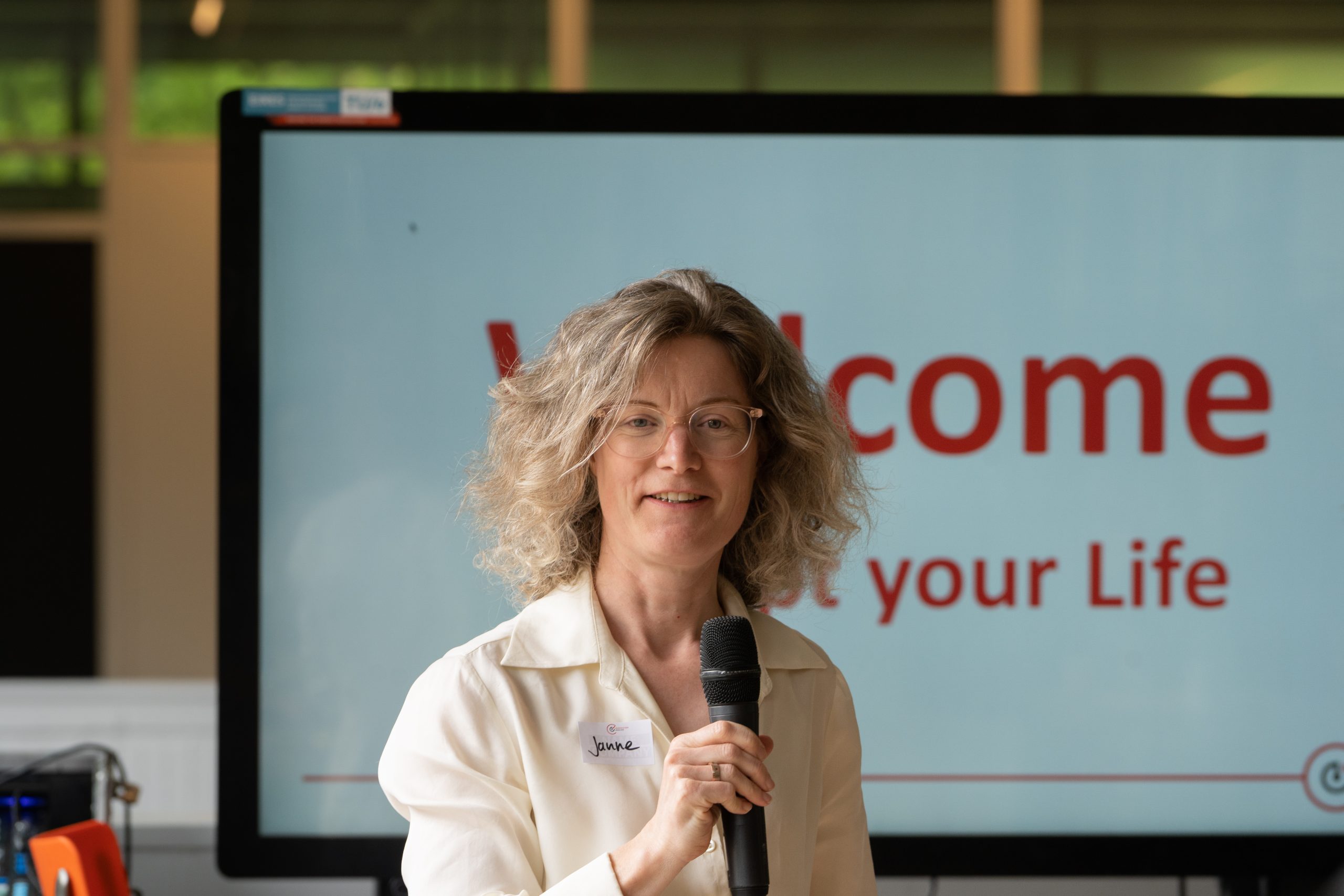
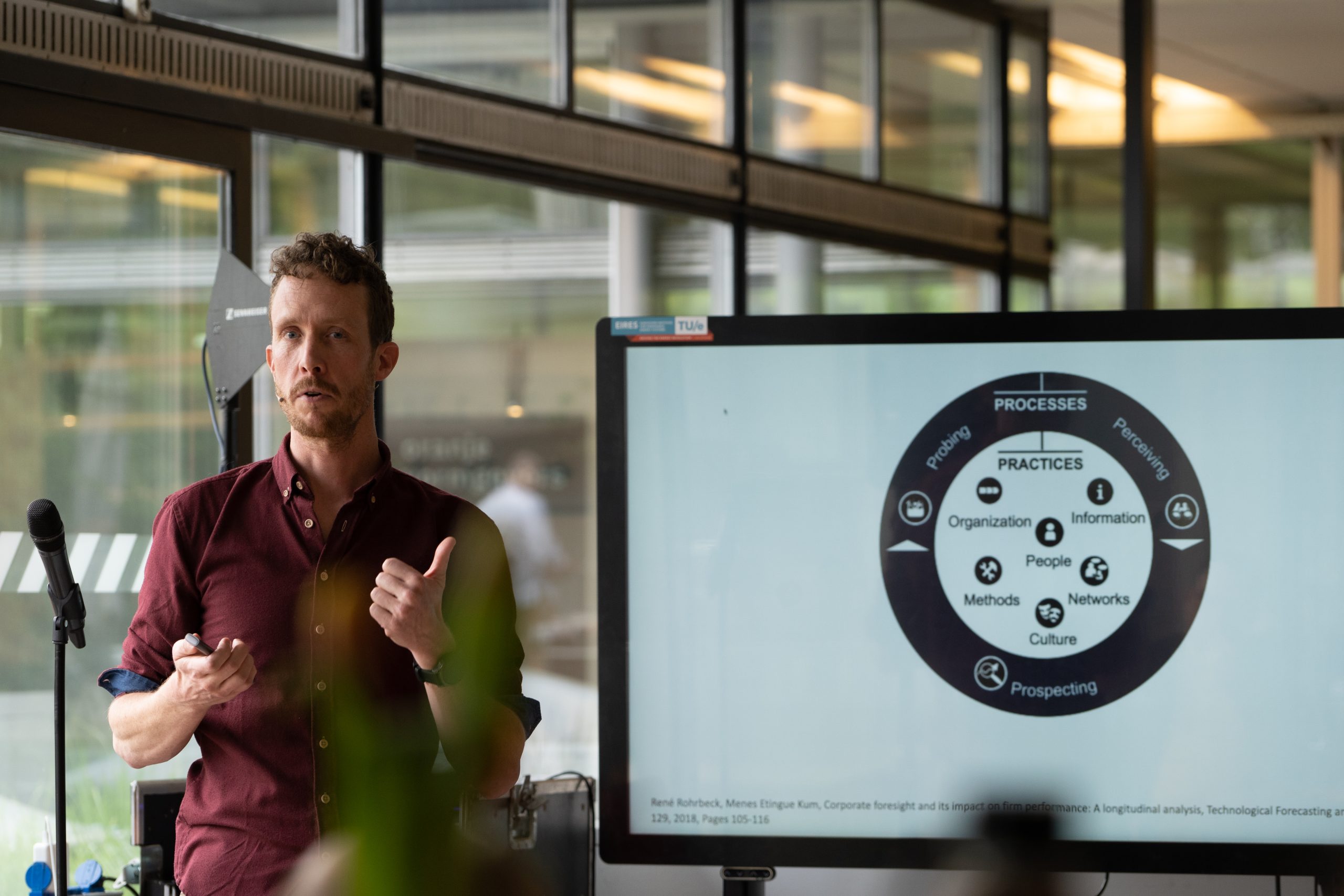
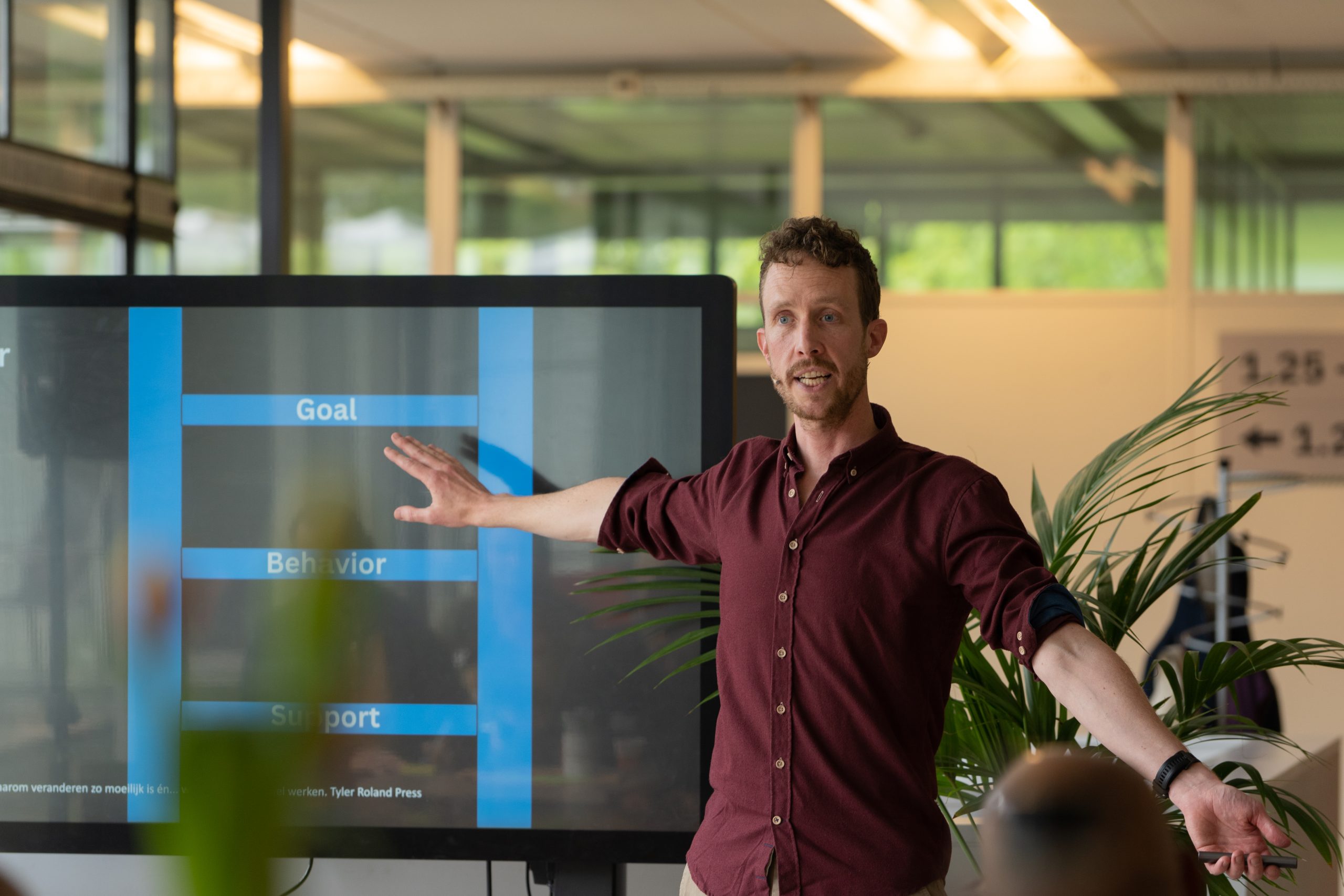
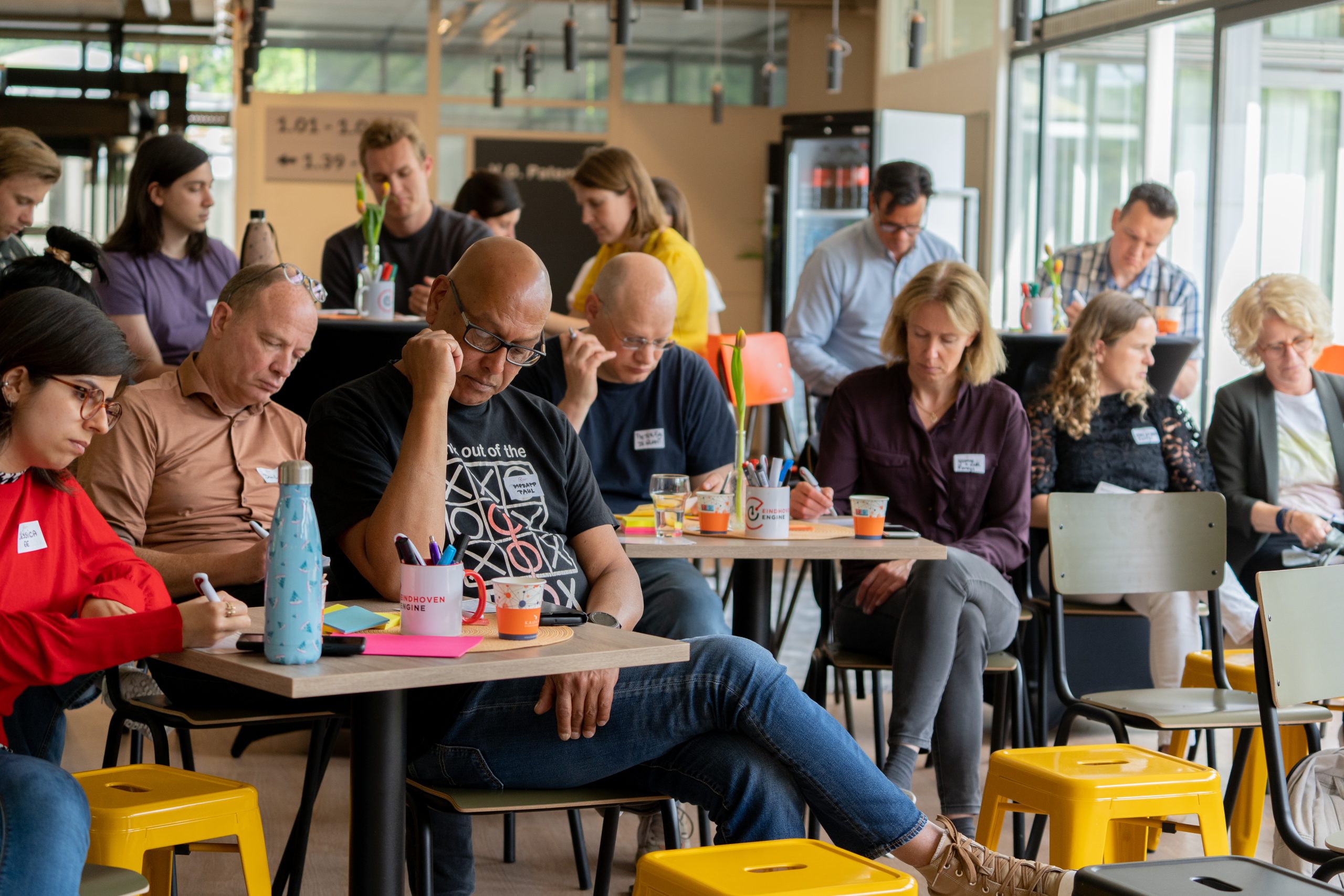
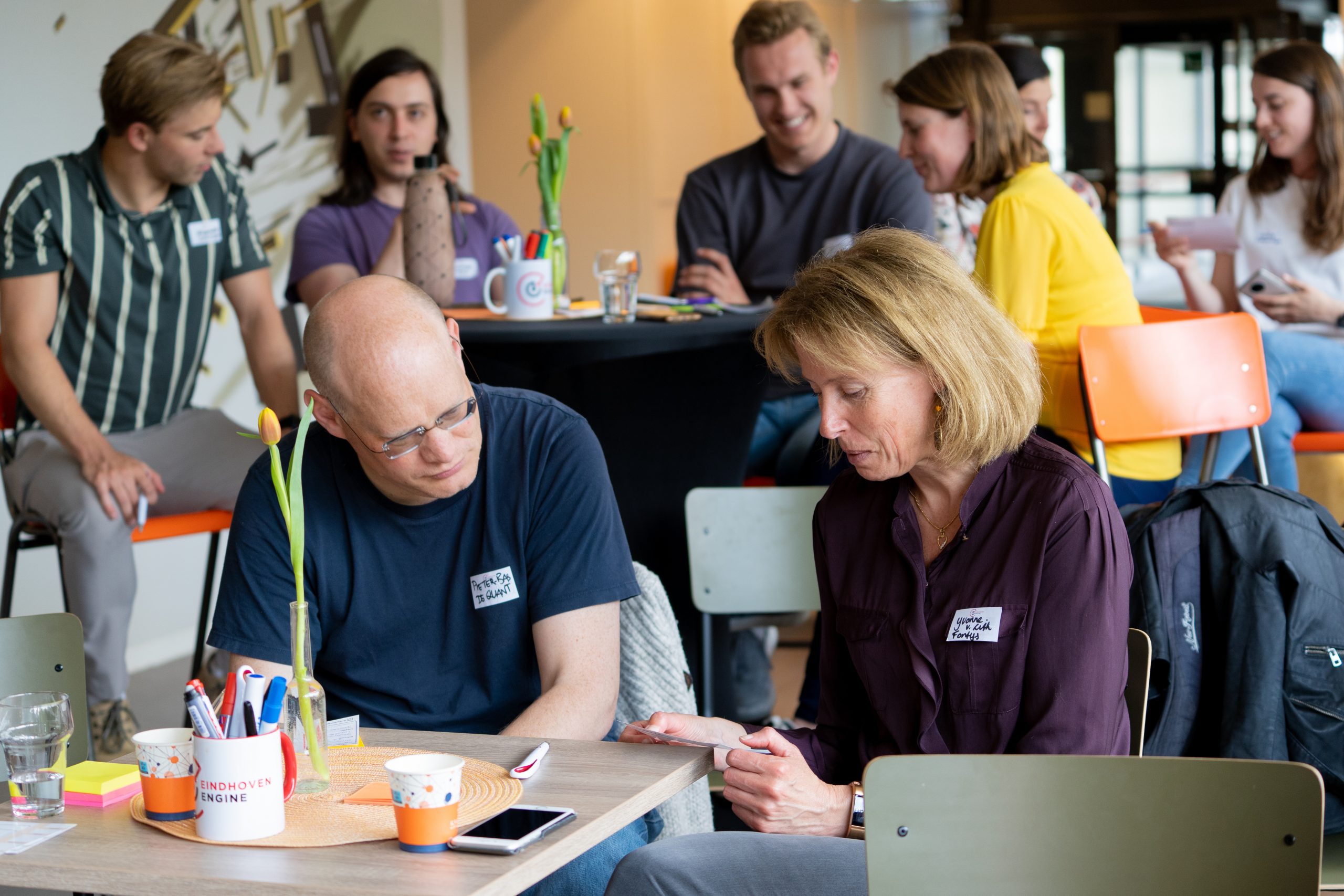
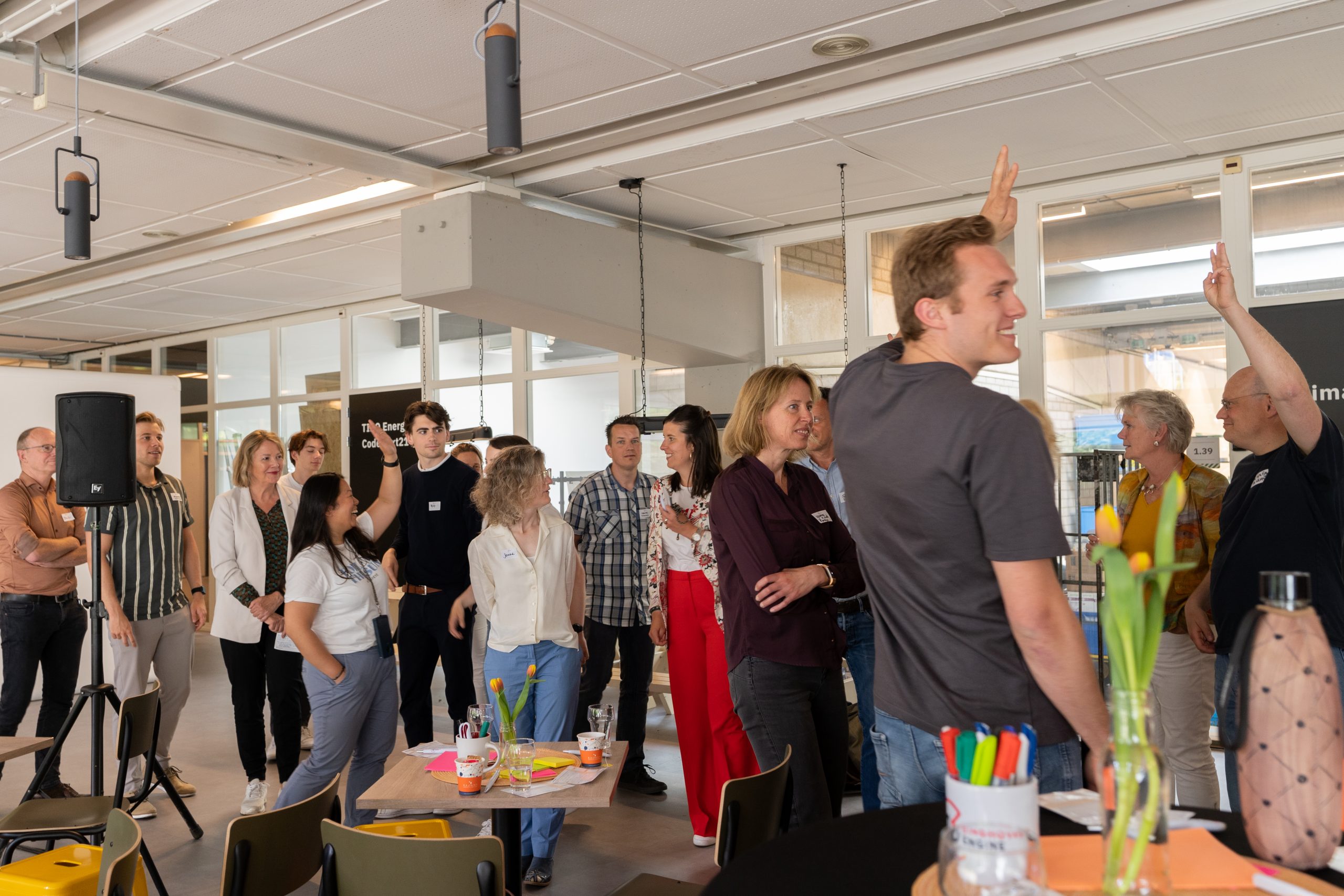
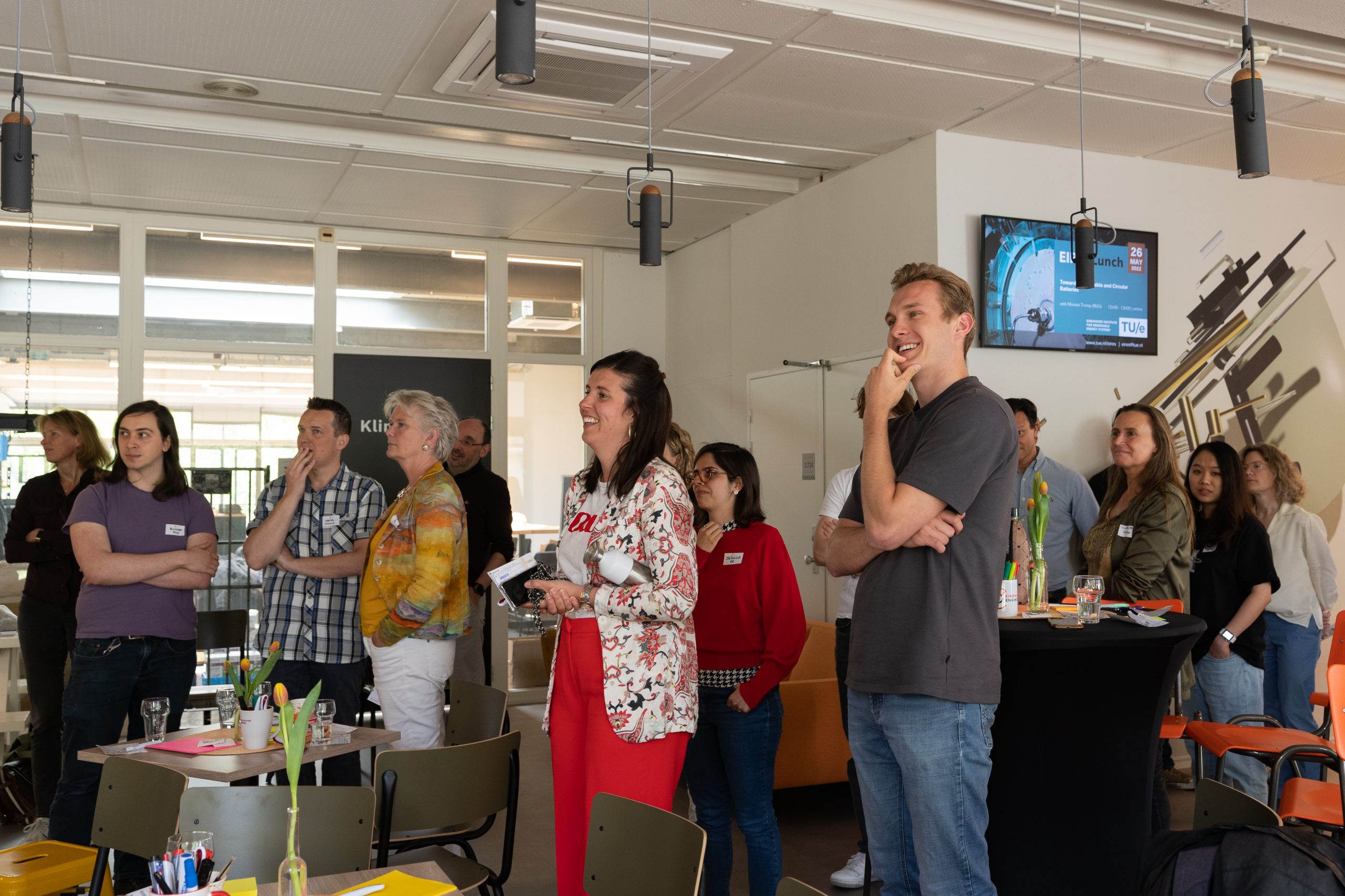
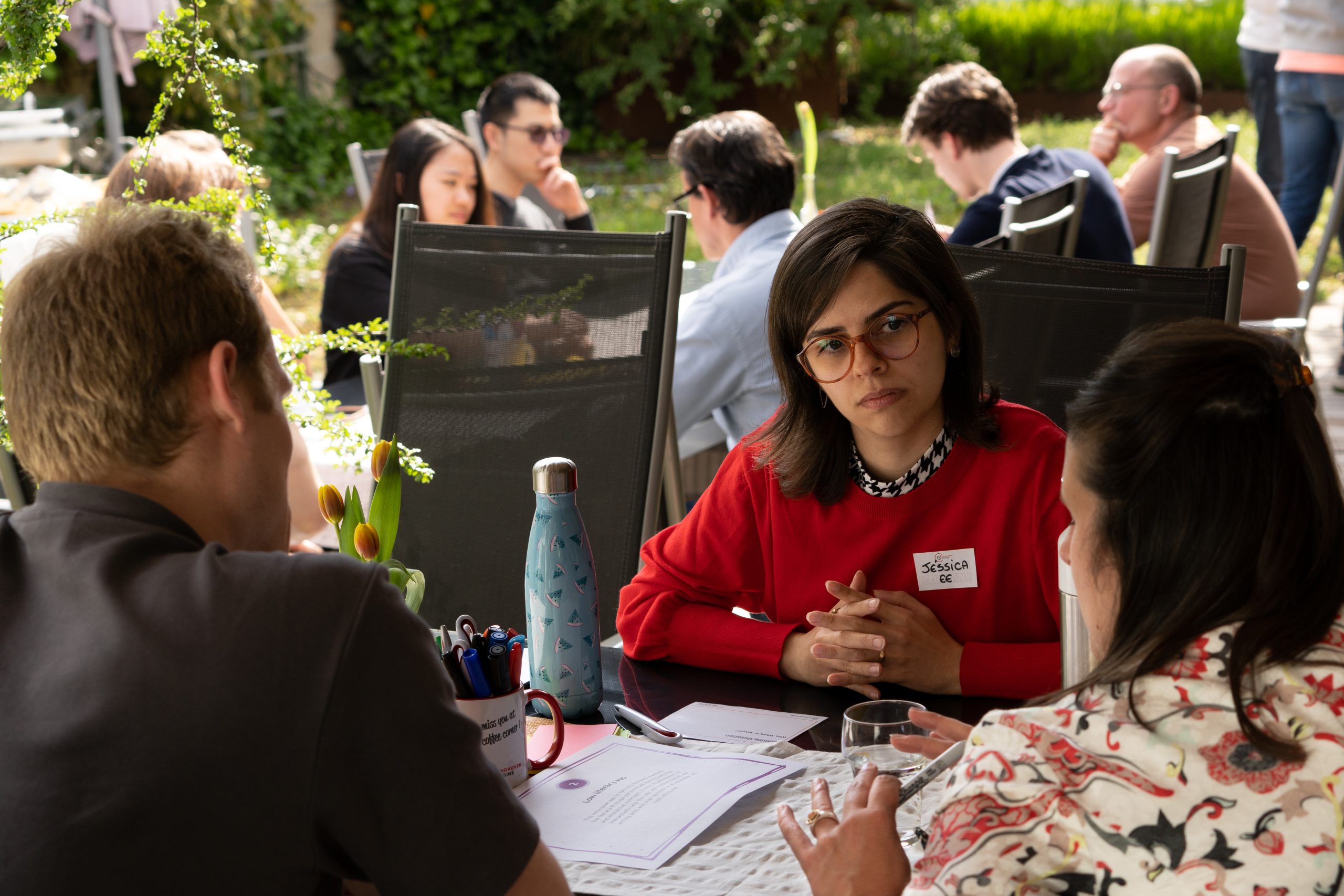
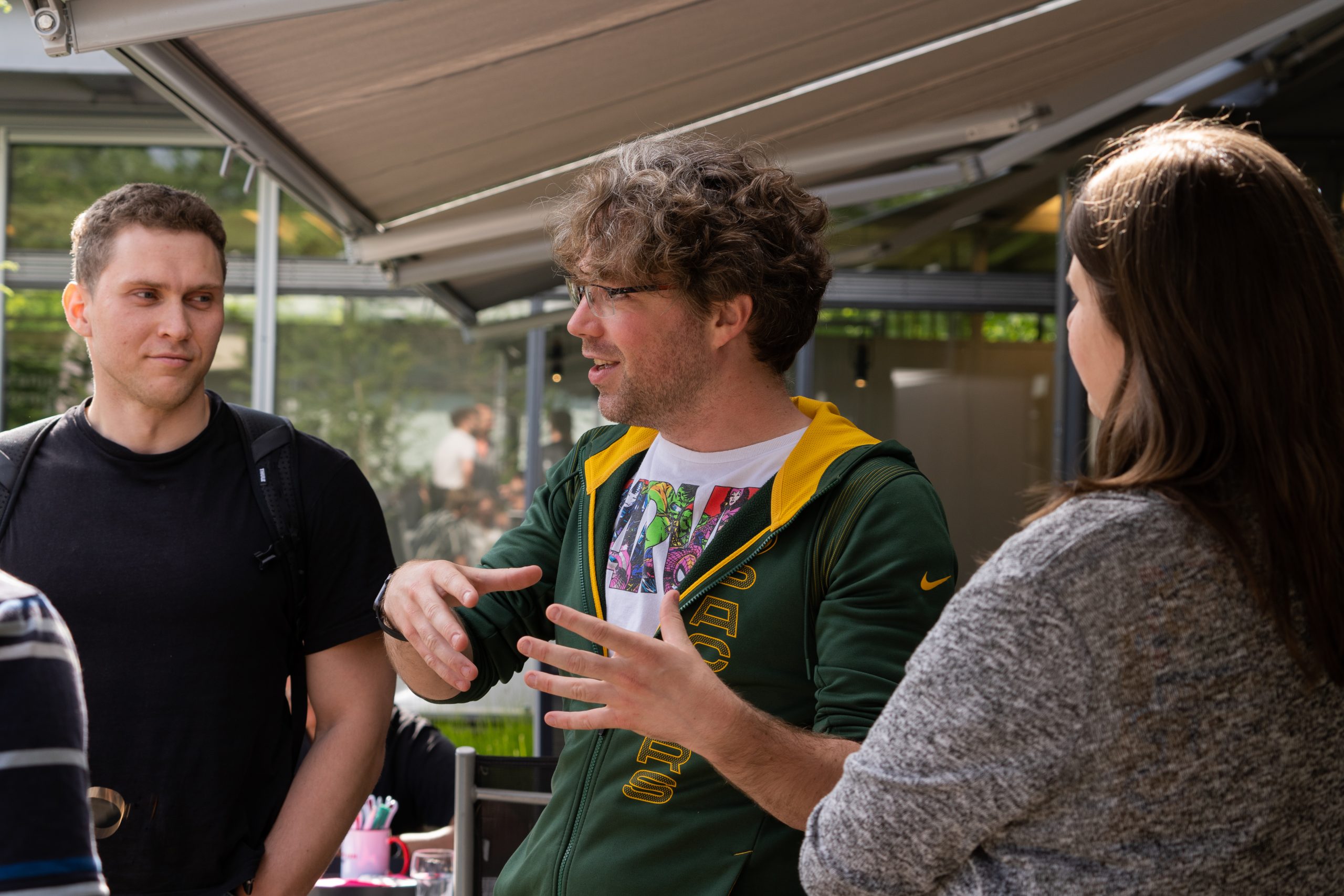
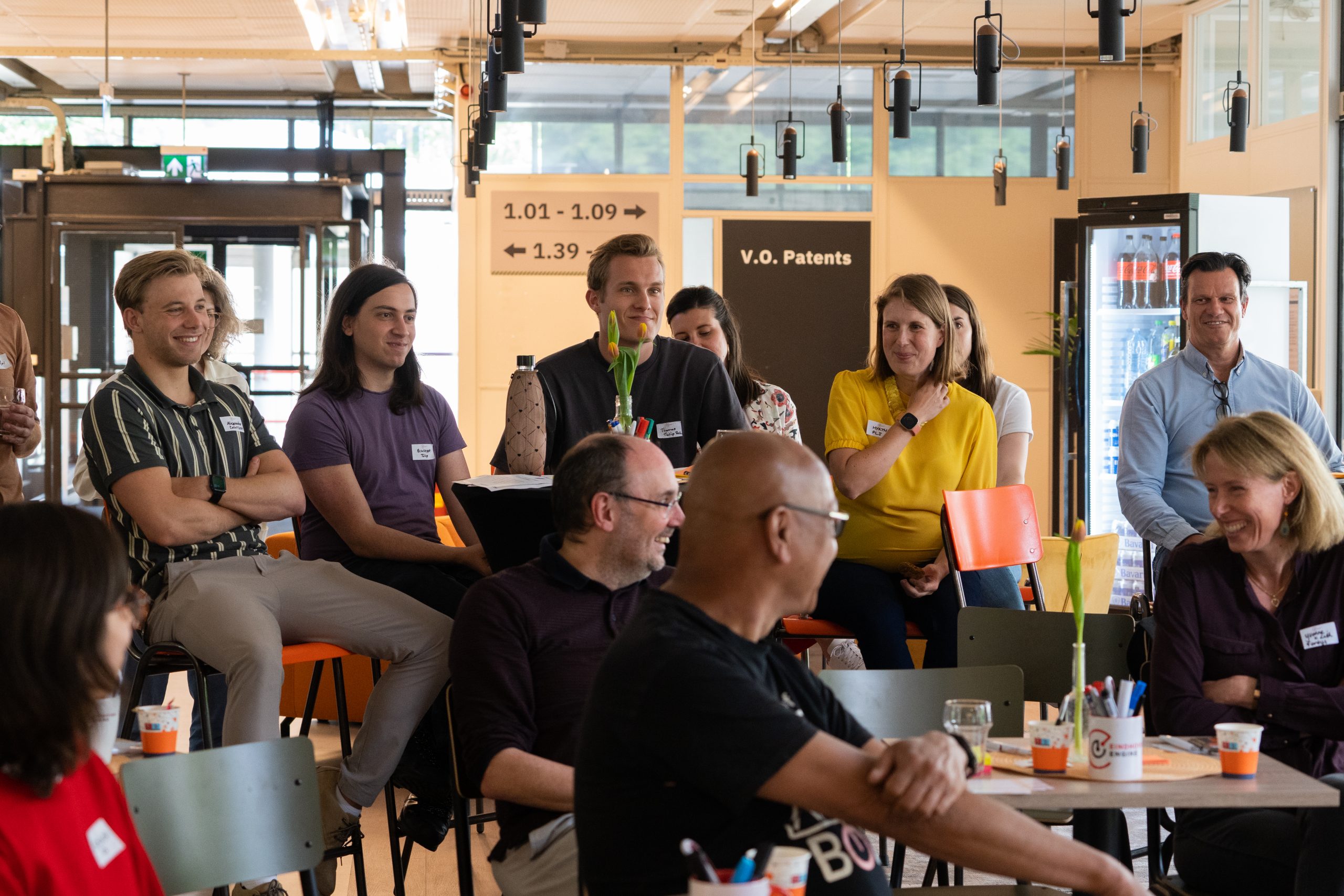
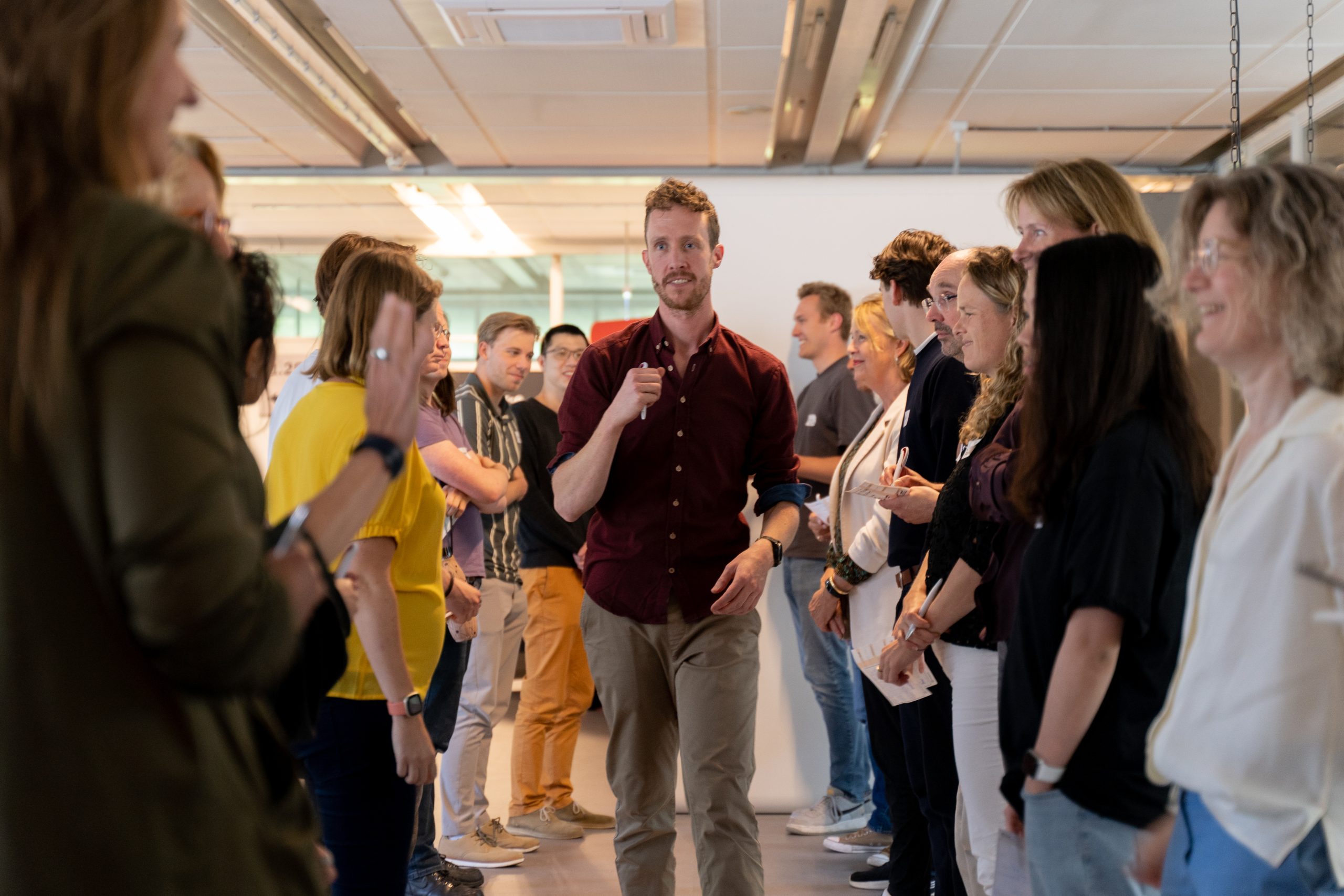
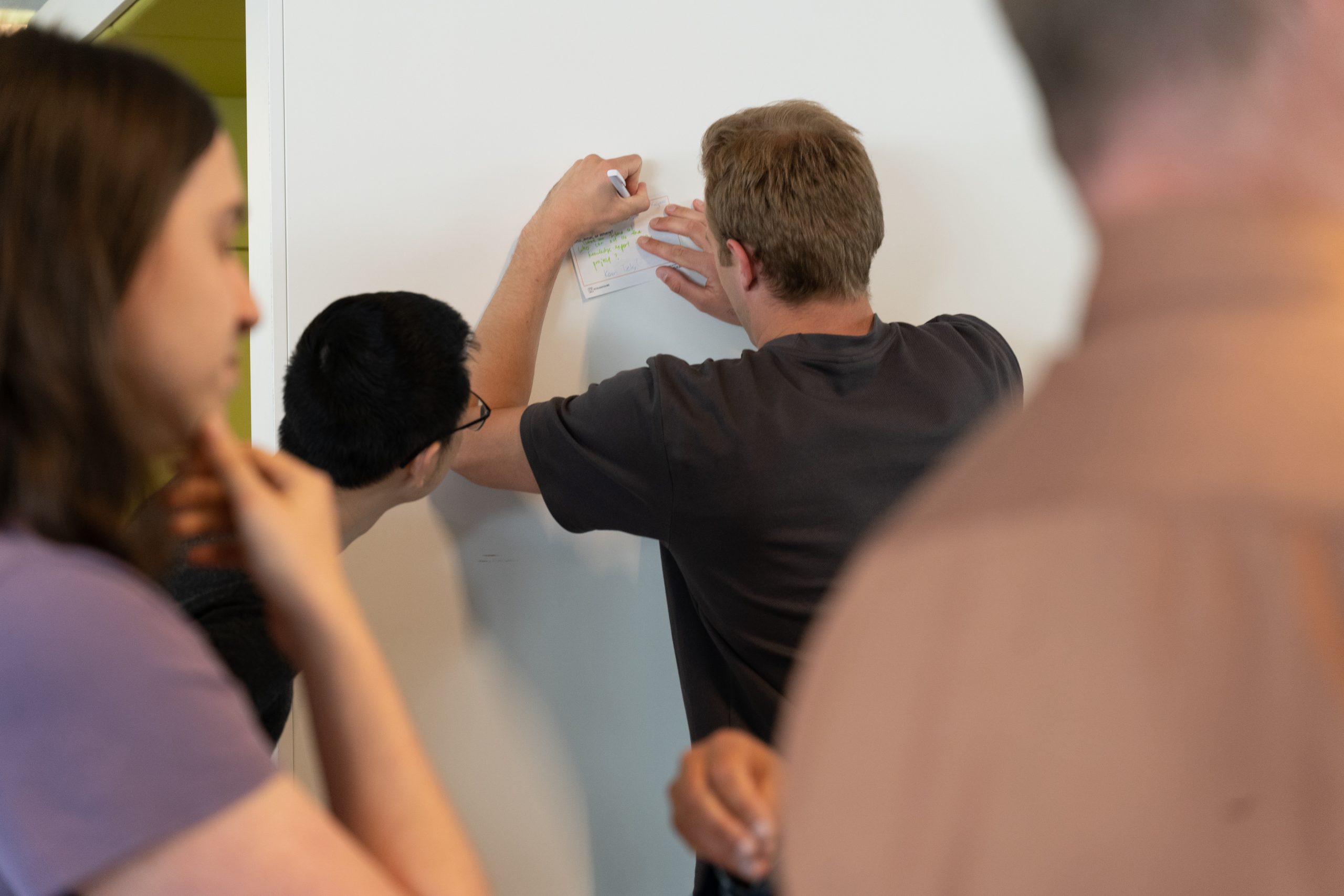
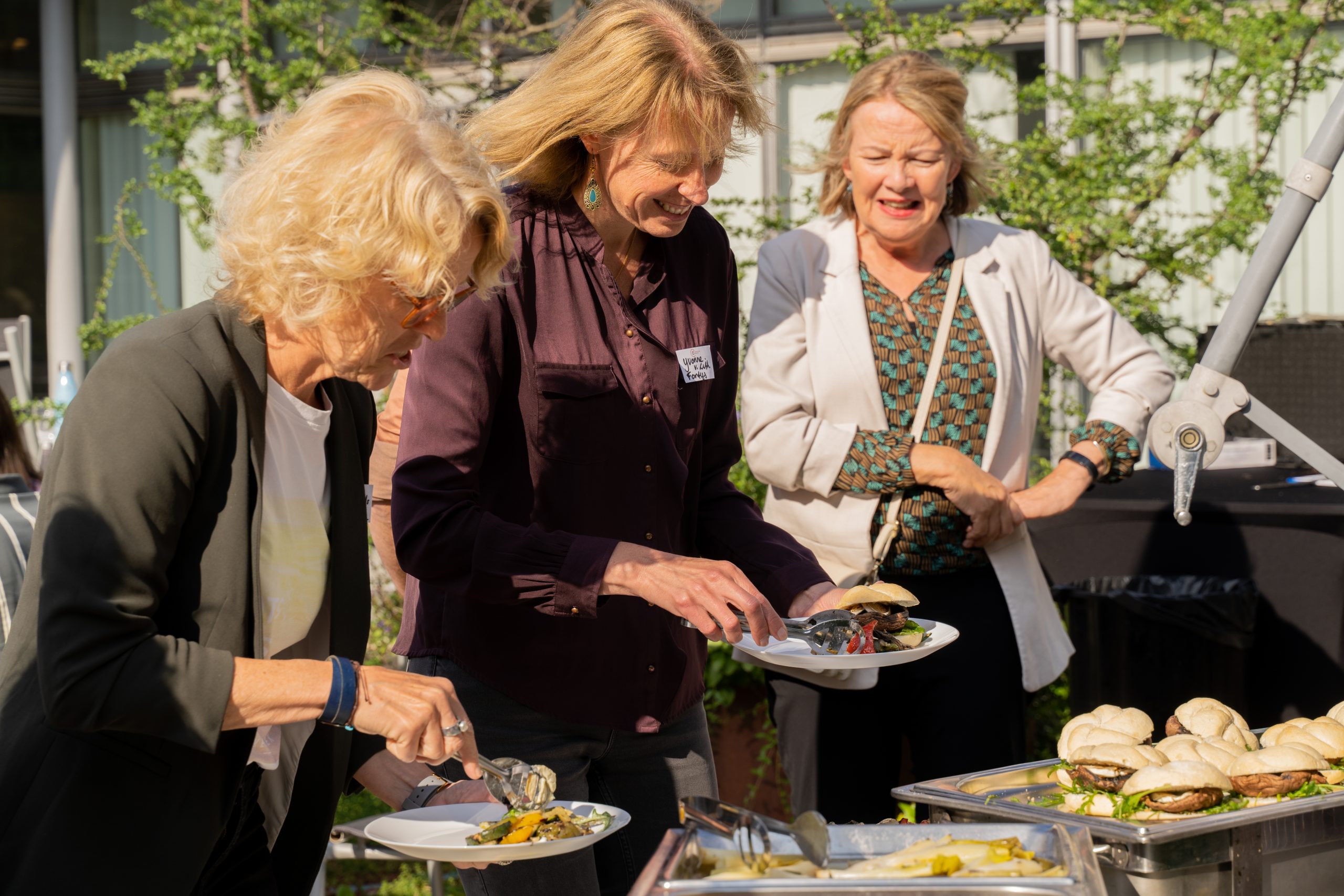
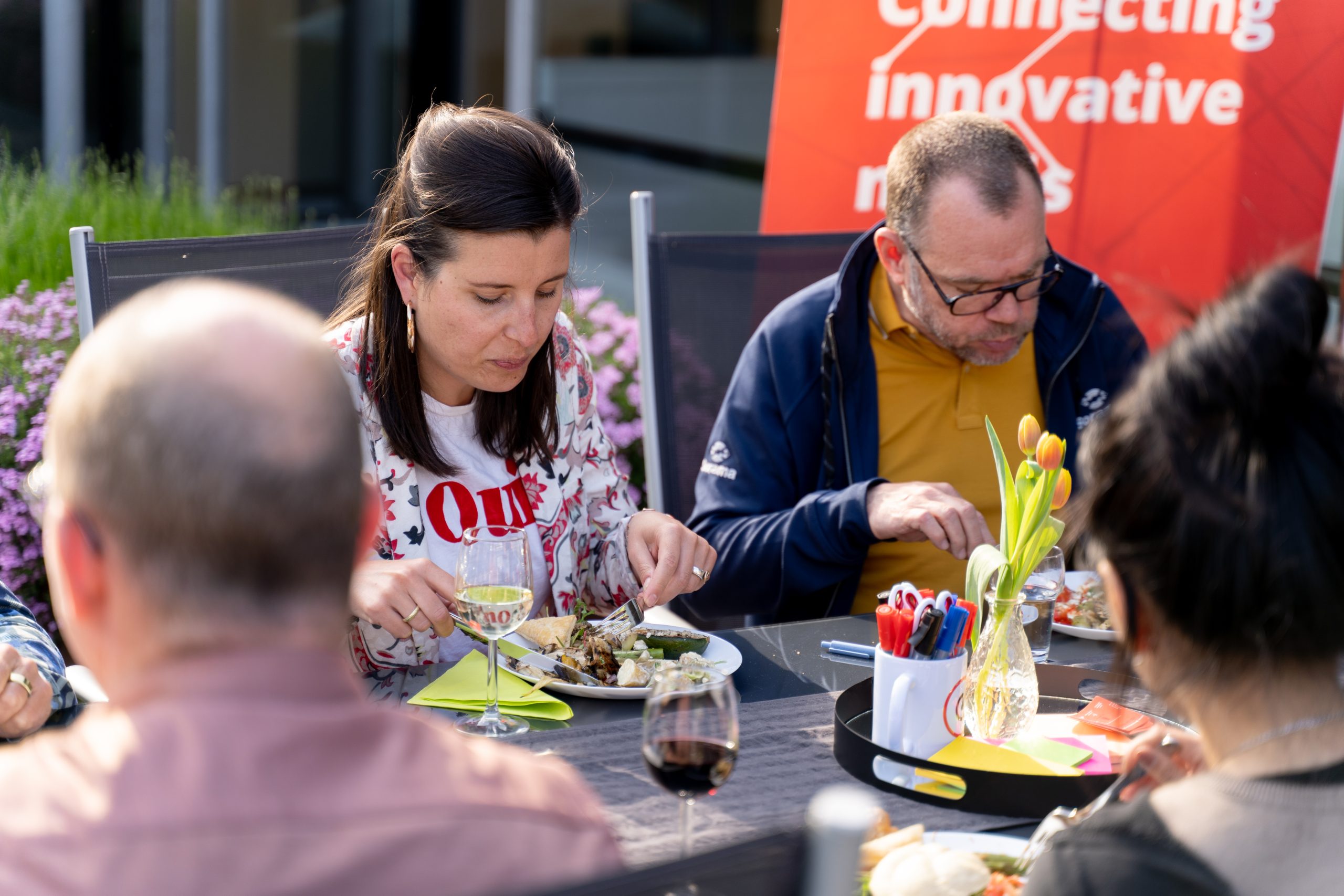
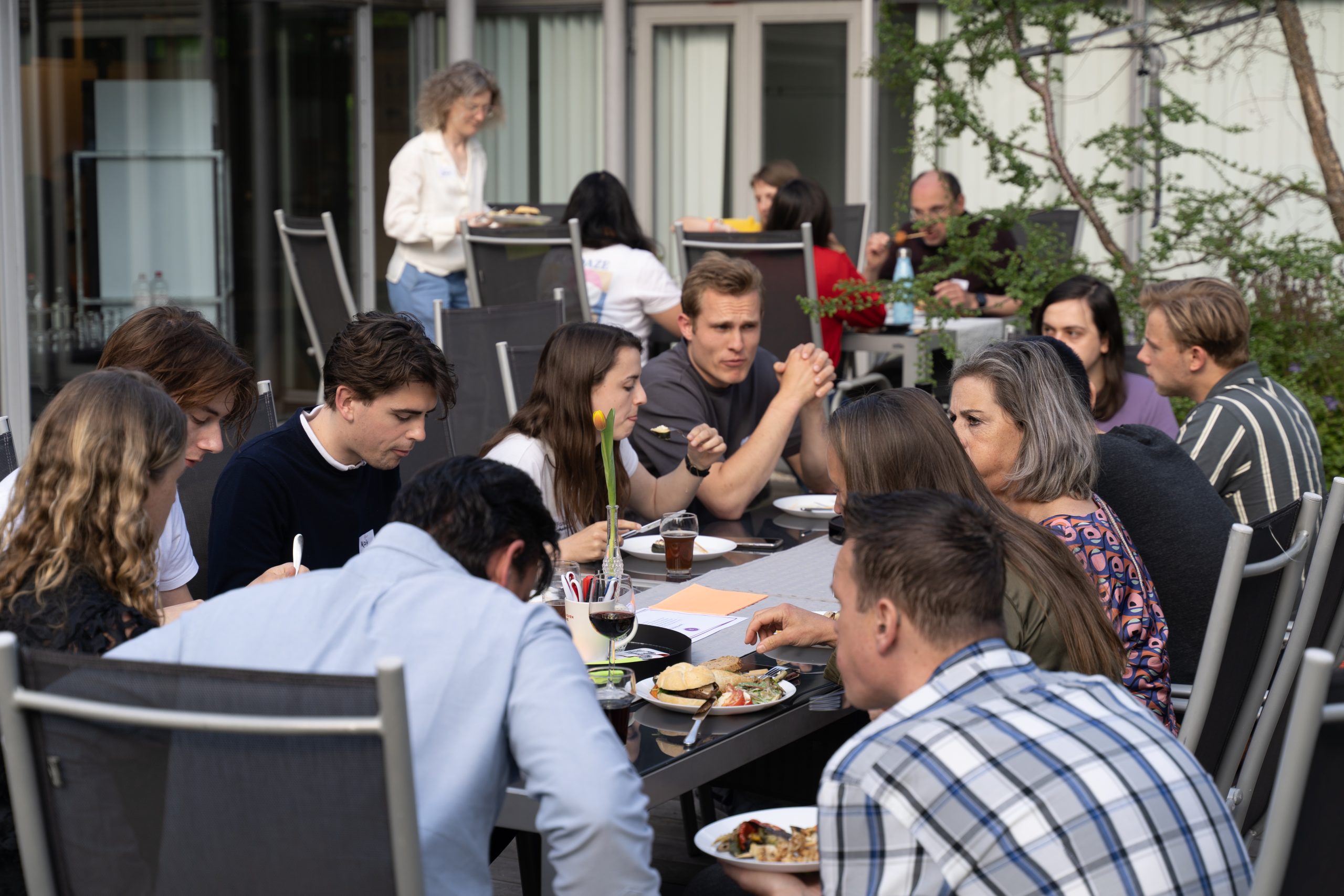
Eindhoven Engine’s Disrupt Your Life series
In this series you will be inspired and encouraged to become more disruptive in your daily life, both in your private and professional life. It will bring new ways of thinking and acting.
Keep an eye on our social media for the next Disrupt your Life!
